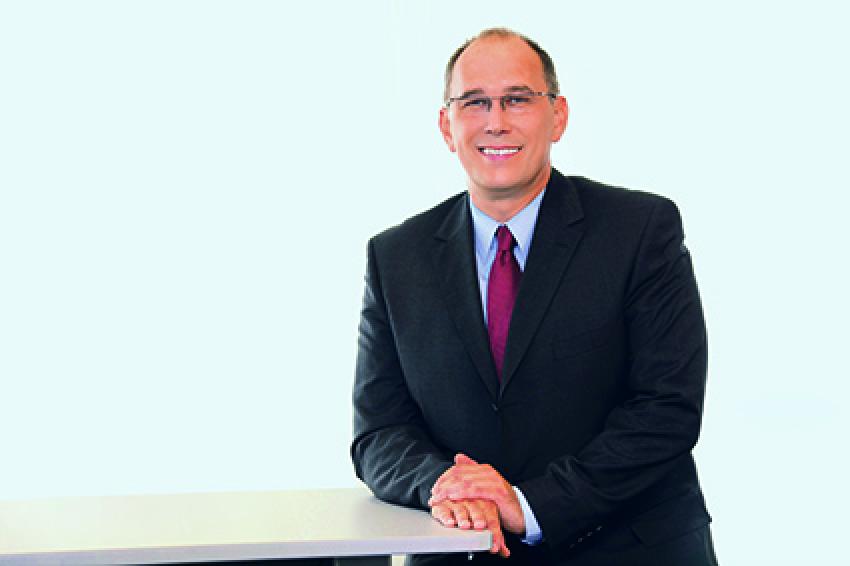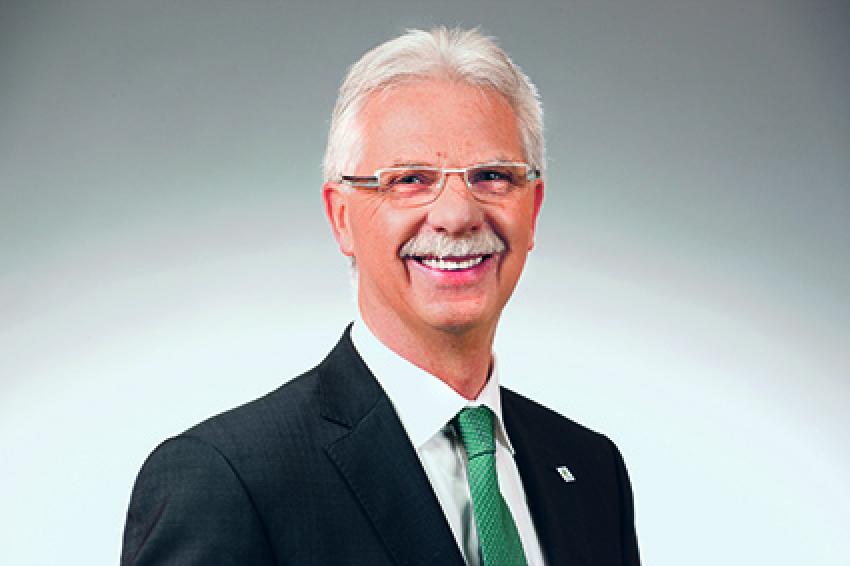Focal Point: Industrial Services
Interview with Dr. Michael Herbermann and Gerhard Schmidt, Bilfinger Industrial
Rebranding Strategy - At the beginning of the year, Germany-based Bilfinger Group restructured its industrial segment that generated revenues of around €3.7 billion in 2012. Alongside Bilfinger Industrial Services of Munich, which is widely known simply by its abbreviation, BIS, it established Bilfinger Industrial Technologies in Frankfurt, a second subgroup specializing in planning and constructing industrial plants. Simultaneously, all the group companies now bear the Bilfinger name as part of the group's rebranding strategy. This means the BIS abbreviation has been relegated to the history books. CHEManager Europe asked the CEOs of the two subgroups - Dr. Michael Herbermann from Industrial Services and Gerhard Schmidt from Industrial Technologies - about the new group strategy and how their companies are positioned.
CHEManager Europe: Bilfinger Group has evolved from a construction company into an international engineering and services group over the last few years. What are the ramifications of this as far as the reorganization of Bilfinger Industrial is concerned?
Dr. M. Herbermann: The Industrial segment reflects the Bilfinger Group's strategic realignment as an international engineering and services group. We at the former BIS Group made a material contribution to widening the share of services compared with the Bilfinger Group's traditional construction business, so much so that they now account for over 80% of total revenues. With its strong international outlook, the Industrial segment alone provides around 40% of the group's total revenues. We have therefore obviously played a crucial role in Bilfinger's realignment. The new brand decisively underscores the importance of services business. The fact that our companies bear the Bilfinger name conveys to a broad public the core role that we play in the group's business.
G. Schmidt: Bilfinger Industrial Technologies got off to a very strong start at the beginning of the year. The reorganization of the segment coincides with the new subgroup's hour of birth, so to speak. Now we want to make use of the opportunities available to us for establishing ourselves even more clearly as a provider of solutions for planning and constructing industrial plans and consider ourselves to have a good position at this stage. One of our advantages is that as a new subgroup we are able to benefit from the outstanding reputation our operating companies enjoy in the marketplace, and the group's renowned engineering skills and service orientation form a key element of our mindset as well as providing the basis for our business activities. What is more, with the integration of the international Tebodin Group, we have additionally broadened our consulting and planning skills.
What specific goals are you pursuing with the reorganization of the Industrial segment?
G. Schmidt: The new structures allow the two subgroups within the segment to focus more clearly on their respective core skills. At the same time, we are able to hone our profile as providers of solutions as a result of the adjustments to internal organizations. There is some overlapping between the two subgroups, both of which have a specific focus in terms of region and portfolio. Together we are pursuing the goal of addressing our customers' requirements on an even broader basis than before.
Dr. M. Herbermann: What we are doing is implementing a model that was already part of our DNA for a number of years. We had previously had companies in our Plant Technologies division specializing in planning, designing and assembling plants, plant components and supply facilities. Essentially, these companies have now been placed under the Industrial Technologies roof together with the Tebodin Group. At the same time, the companies specializing in maintenance have remained in the Industrial Services subgroup. We previously went to particular lengths to harness the synergistic benefits arising from joint activities between these companies for the benefit of our customers and will continue to do so in the future.
What services does Bilfinger Industrial offer its customers and how are they structured within the segment?
G. Schmidt: Bilfinger Industrial provides its customers with services throughout the entire life cycle of an industrial asset covering such aspects as engineering, fabrication, assembly, startup, maintenance, optimization, conversion and also dismantling. The main focus of Industrial Technologies is on the first part of the life cycle. We offer advice and engineering and provide bespoke plant and infrastructure solutions in close collaboration with our customers. At the same time, we are able to offer activities individually or in packages with the aim of minimizing time-consuming interfaces for our customers. In addition, we supply plant components incorporating our own technical expertise. Our companies supply, assemble and start up these engineered products around the world.
Dr. M. Herbermann: The second step of the life cycle chiefly involves maintenance, including scheduled turnarounds as well as modifications and modernization. These are the main activities pursued by the Industrial Services subgroup. This is supplemented by regional business such as tank and pipeline construction in the United States and production/assembly in India.
What do you consider the specific strengths to be?
G. Schmidt: The particular strengths of Industrial Technologies are to be found in engineering, engineered products and plant engineering. Our engineering skills range from special solutions to general planning and designing services. We define engineered products as turnkey plant components, which we develop for gas processing or biotechnology, for example. As a plant engineering company, we are also able to handle complex large-scale projects with our own internal resources and capabilities.
Dr. M. Herbermann: Over and above the individual activities and services, one particular aspect of the approach taken by Industrial Services is that we constantly enhance our methodologies and processing skills and seek to share them throughout the entire group. At the international level in particular, we are able to act as a strategic partner to our globally active customers thanks to our superior maintenance models and processes. We will be additionally bolstering this international orientation as one of our key strengths.
Does this mean that you will be continuing your internationalization strategy and, if so, with what kind of emphasis?
Dr. M. Herbermann: Portfolio expansion and internationalization have always formed the basis for our evolution to become the leading provider of industrial service solutions. Thus, for example, E/I&C has been part of our range for years. We have invested specifically in Central Europe and also Scandinavia and the United Kingdom to strengthen our regional activities in this area. Specific targets for further acquisitions include North America, India and Southeast Asia as well as Turkey and the Middle East.
G. Schmidt: For one thing, we want to additionally reinforce our engineering skills via acquisitions in the target markets we have defined, namely Northern Europe, North America, Australia and China. We see potential for plant engineering in Russia, Asia and the Middle East. In addition to this, internal collaboration within the Bilfinger Group - at the group, segment and also subgroup level - provides crucial leverage for reinforcing our market position. In this way, we want to additionally internationalize our business, for example by making use of the representative offices of our subsidiary Tebodin to access markets in growth regions for the delivery of plant components and execution of plant engineering projects.
Contact
Bilfinger Berger Industrie Services GmbH
Gneisenaustr. 15
80992 München






